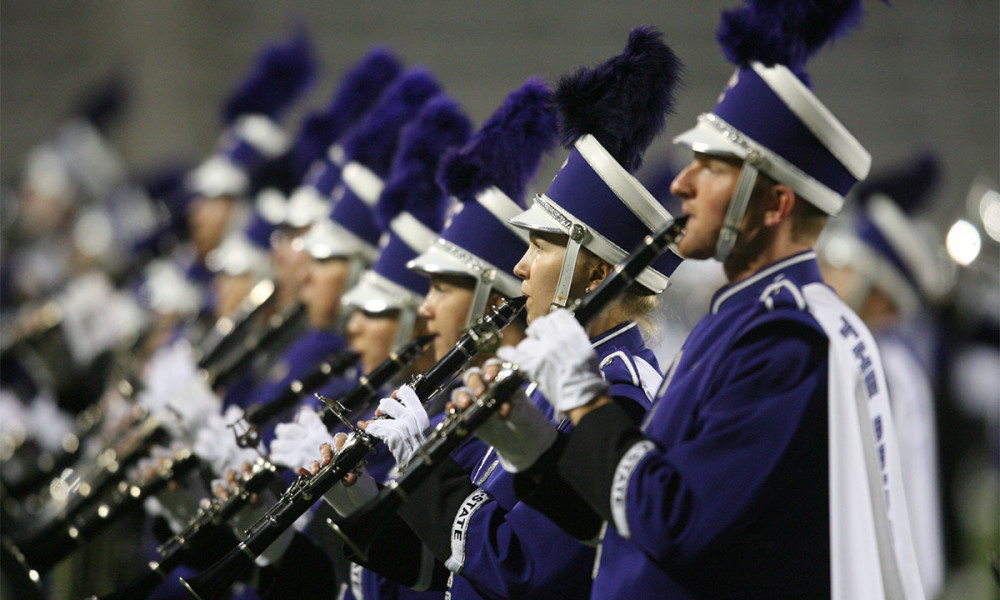Going where no band has gone before, the Kansas State (K-State) University band made national news when a Star Trek drill formation was misinterpreted as phallic during its home opener.
The band formed the image of its rival mascot, the University of Kansas Jayhawk, being attacked by the Starship Enterprise. Unfortunately, some interpreted the image differently, and it quickly went viral.
“There was no intention to do anything other than what we did,” says director of bands Dr. Frank Tracz. “Some people suggested that maybe a group of students decided to do this on their own and absolutely not. I vehemently deny that.”
The Big 12 Conference contacted K-State to say that there may have been a rules violation by mimicking a rival’s mascot. Hoping to avoid more severe punishment, the university decided to self-sanction by banning Tracz from the rivalry game in late November (in this particular game, the football team was playing the University of South Dakota), requiring oversight and approval of all future halftime shows and paying a $5,000 fee to the conference.
“We absolutely did nothing at all wrong,” Tracz says. “The precedent for putting a rival in the show has been set by literally hundreds of marching bands throughout this country in past years, so I’m not sure why that is sticking and why we’re the only ones to get nailed for that.”
Mistakenly assuming that the $5,000 would come from the band’s budget—or Tracz’ pocket—band alumni and supporters started a crowdfunding campaign. When they learned the university president’s budget paid the fee, they instead directed the donations to the band’s scholarship fund. More than $50,000 has since been raised through the page and other direct donations.
Tracz says he is most upset by the university mandate to approve all future shows and drill, which he see as a challenge to free speech.
“[It’s] difficult for me to swallow this,” Tracz says. “We’re fighting it tooth and nail because I think it’s flat out wrong. This could have national implications … with censorship and freedom of speech and the right to teach a class content without anybody looking over your shoulder and telling you what to teach.”
Although upset by the scandal, Tracz says that it has not tarnished the band’s enjoyment of its “Sudler Season,” celebrating its receipt of collegiate marching band’s highest honor.
“The very next week the Sudler committee was here and gave us the Sudler Trophy for outstanding marching band, and the stadium gave a standing ovation,” Tracz says. “I haven’t heard that loud of a round of applause in a long time, so it made the kids feel really good.”

